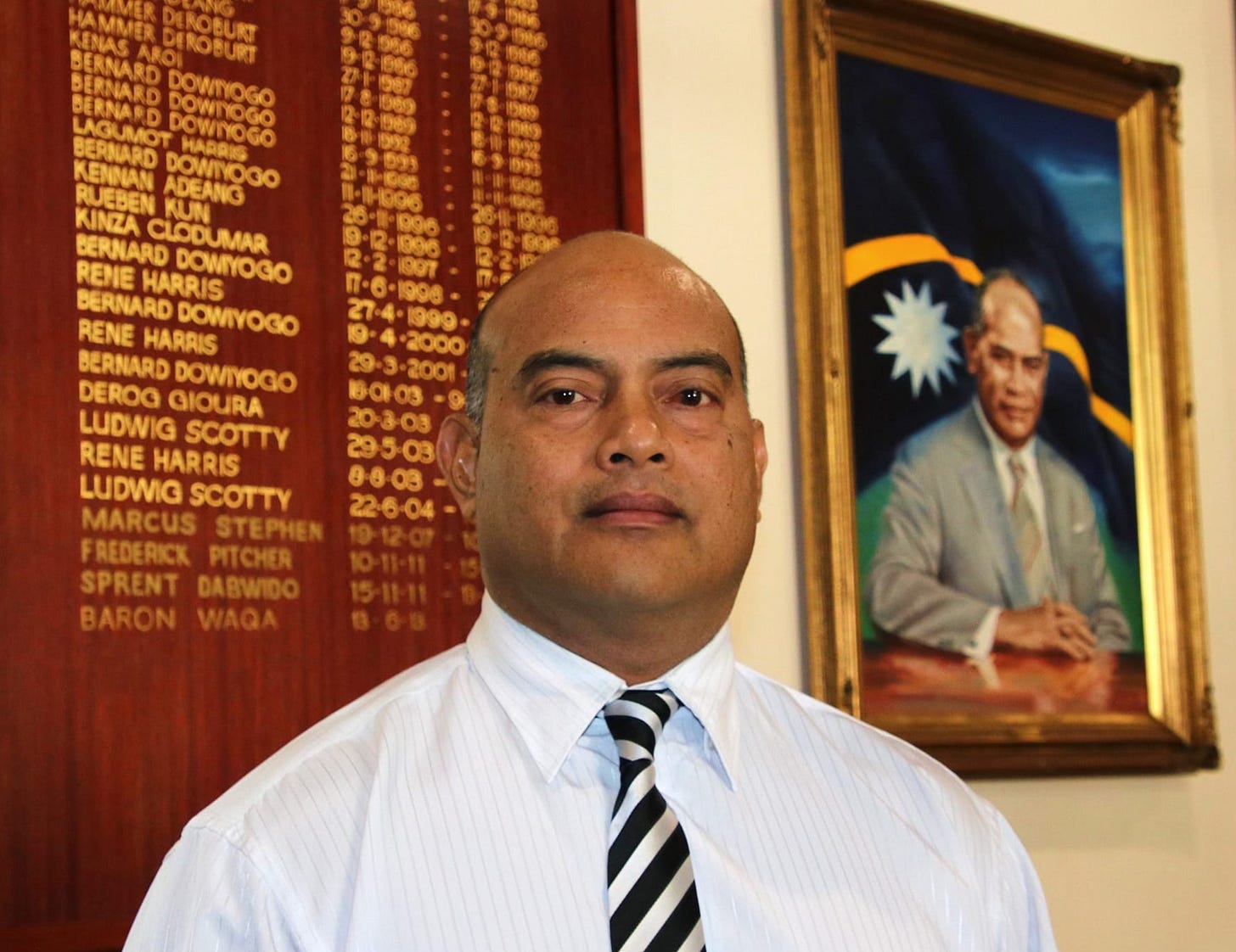Nauru votes with fractions, not parties
World’s smallest republic uses a bizarre voting system, a referendum, and president's gamble on crypto, China and deep-sea mining
Nauru holds elections next month using a mathematical voting system so eccentric it can be decided by fractions of a point. At stake: a referendum on extending parliament’s term and the survival of President David Adeang’s high-risk economic experiments - from jailing Australia’s asylum seekers and selling passports to mining the seabed, betting on crypto, and courting opaque billion-dollar deals with China.
Nauru, the world’s smallest republic, will hold a general election next month using a unique voting system that, ironically, doesn’t really produce a government.
Election day will include a referendum on whether to extend the parliamentary term from the current three years to four.
The ballot, involving around 8,500 voters out of a total population of 12,500, comes as Nauru, under President David Adeang, 55, pushes an agenda which includes imprisoning Australian asylum seekers, deep sea mining, crypto currency, international citizenship sales and a mysterious multi million dollar relationship with China. And all this against a long history of corruption and exploitation of Nauru by the outside world.
Nauru’s Speaker of Parliament, Marcus Stephen, announced the Saturday 11 October election. Voting is compulsory for registered voters (Nauruan citizens aged 20 plus) and turnout is usually around 96 percent.
US President Donald Trump says he’s releasing classified files on Amedlia Earhart’s disappearance - here at South Pacific Tides we’ve followed for years - and knows where the body went…
Nauru’s elections using one of the planet’s most eccentric voting systems. A preferential or positional voting system known as the Borda method (named after an 18th century French mathematician). Nauru has modified it, calling it the “Dowdall system”.
Each candidate for elections is given a number of points equal to the number of candidates ranked below them: the lowest-ranked candidate gets 0 points, the second-lowest gets 1 point, and so on.
Keep reading with a 7-day free trial
Subscribe to Michael Field's South Pacific Tides to keep reading this post and get 7 days of free access to the full post archives.



